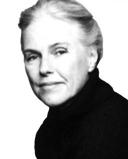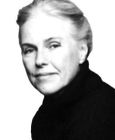Freudian Psychology
On Karl Ove Knausgaard's "My Struggle"
Why does this trilogy, with all its detail from real life, hold our interest ?
Posted June 15, 2014
The greatest of writers, of course, hoodwink us the most effectively making us believe they are simply relating a life, but if you look carefully they never are.
The first volume of Knausgaard’s trilogy, called “A death in the Family,” in my Vintage edition, reads as though we have real life before us, an artless attempt to write an autobiography. Yet this is not a first book at all, nor is it really autobiography. There is nothing artless about it. It is actually cleverly structured with all the necessary elements that a book needs to grasp our attention: the use of tension ( things hinted at from the start but not divulged) and the use of repetition and reversal which holds the book together, as well as the wonderful precision of detail and creation of scene.
We have the title ( or at least my English volume does) and then we start here with death: a powerful beginning about a heart beating. There is a virtual essay about death told with such authority: how we are both bombarded by it in the modern media and that it remains at the same time hidden. All of this draws us in with the high stakes--death versus life--the heart pumping for as long as it can in its basic struggle for life. The question we ask and which keeps us reading on through the detailed and credible portrait of life given here, is who is going to die? We presume the father, and we wait for it to happen and it does, of course, but 200 pages further.
Some of this may be my own reading of the book. We bring out own experiences, of course to the page, and having lost a father so young I may be projecting some of this, but it remains in the pages it seems to me: the omnipotence of the father who seems to know when the boy is running for example in some uncanny way and then his gradual disintegration. We watch him fall apart little by little with the ravages of alcohol. He is , as he so often is, ( think of all of Freud's case histories) at the heart of the book particularly a book by a young or relatively young male author.
We have too the strange face that the boy sees in the T.V. which we think he has forgotten about but is picked up later just as the father's death is. We are eventually told how the father died in great detail with the wonderfully vivid scene of the two brothers viewing his body: one of the finest scenes of this kind, it seems to me.
These are just a few remarks on the subtle way this book is held together and the way it enchants us, holds us in its sway.
Sheila Kohler is the author of many books including the recent Dreaming for Freud.


